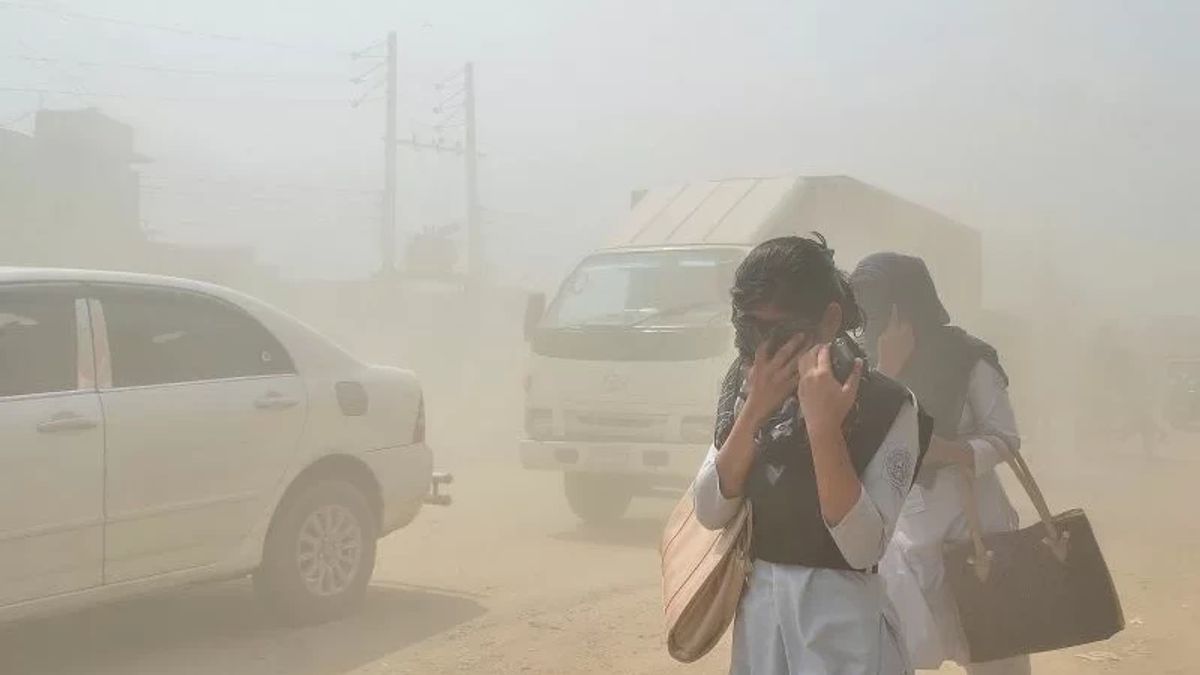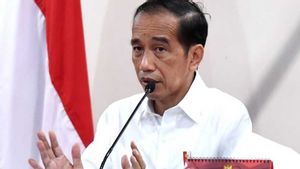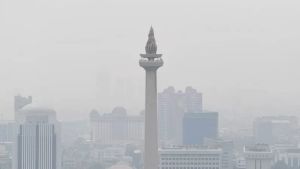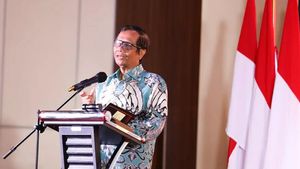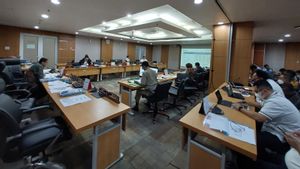JAKARTA - The Ministry of Health (Kemenkes) is preparing efforts to prevent urban air pollution in Indonesia to reduce the rate of respiratory disease cases.
Head of the Communication and Public Service Bureau of the Ministry of Health, Siti Nadia Tarmizi, said that the effort collaborated with the community and cross-sectors concerned.
"Efforts are carried out by involving cross-sectors, because this is an environmental problem and we are in it. This problem must be overcome together," said Nadia, Tuesday, April 4, quoted by Antara.
Nadia said the efforts currently being taken by the government in providing clean and pollution-free air were carried out by encouraging promotive and preventive efforts to prevent people from experiencing the negative effects of health from air pollution.
Based on data from the 2019 Global Burden Diseases, there are five respiratory diseases that trigger the highest death cases in the world collected from 1990 to 2019.
The disease in question includes chronic obstructive pulmonary disease (PPOK) which contributed to the death rate of 3.2 million people with an incidence rate of 209 cases, pneumonia contributed to the death rate of 2.6 million people with an incidence of 6,300 cases, lung cancer contributed to the death rate of 1.8 million people with an incidence rate of 29 cases.
Then tuberculosis (TBC) contributed to the death rate of 1.2 million people with an incidence rate of 109 cases and asthma contributed to the death rate of 455,000 people with an incidence rate of 477 cases.
While the number of cases in Indonesia, there were 78.3 thousand deaths from COPD with a total of 145 cases per 100,000 population, lung cancer contributed to the death rate of 28.6 thousand people with 18 cases per 100,000 population.
pneumonia cases contributed to the death of 52.5 thousand people with 5,900 incidents per 100,000 population, 90.1 thousand deaths from TB from 128 cases per 100,000 population, and 27.6 thousand people from asthma from 504 cases per 100,000 population.
SEE ALSO:
The Ministry of Health reports air pollution accounts for 36.6 percent of COPD cases, 32 percent of pneumonia, 27.95 percent of asthma, 12.5 percent of lung cancer, and 12.2 percent of tuberculosis in Indonesia.
Air pollution has also exacerbated 15 to 30 percent of the disease in patients with a history of smoking, repeated infections, and genetic factors.
In addition, respiratory diseases also burden the BPJS Health budget to bear the cost of treating patients.
BPJS Kesehatan from 2018 to 2022 absorbed a cost of Rp8.7 trillion for the recovery of pneumonia patients, Rp5.2 trillion for TB patients, Rp1.8 trillion for COPD patients, Rp1.4 trillion for asthma patients, and Rp766 billion for lung cancer patients.
Chairman of the Indonesian Lung Doctors Association as well as Professor of Pulmonology and Respiration at the Faculty of Medicine, University of Indonesia, Prof Agus Dwi Susanto, assessed that cases of respiration can be suppressed by reducing levels of air pollution in urban areas.
"Air pollution has proven to cause respiratory and respiratory problems. Prevention efforts by reducing air pollution must be carried out by all parties so that cases of respiration can be reduced," he said.
Separately, Air Spokesman Co-Founder Novita Natalia said that the problem of air pollution requires the cooperation of all elements, including the community.
"We see this condition as a call for all parties to continue to raise awareness about the importance of clean air," he said.
Talking about air invites all elements of society to voice the right to clean air so that it can influence government policies on improving air quality in Indonesia.
The English, Chinese, Japanese, Arabic, and French versions are automatically generated by the AI. So there may still be inaccuracies in translating, please always see Indonesian as our main language. (system supported by DigitalSiber.id)
